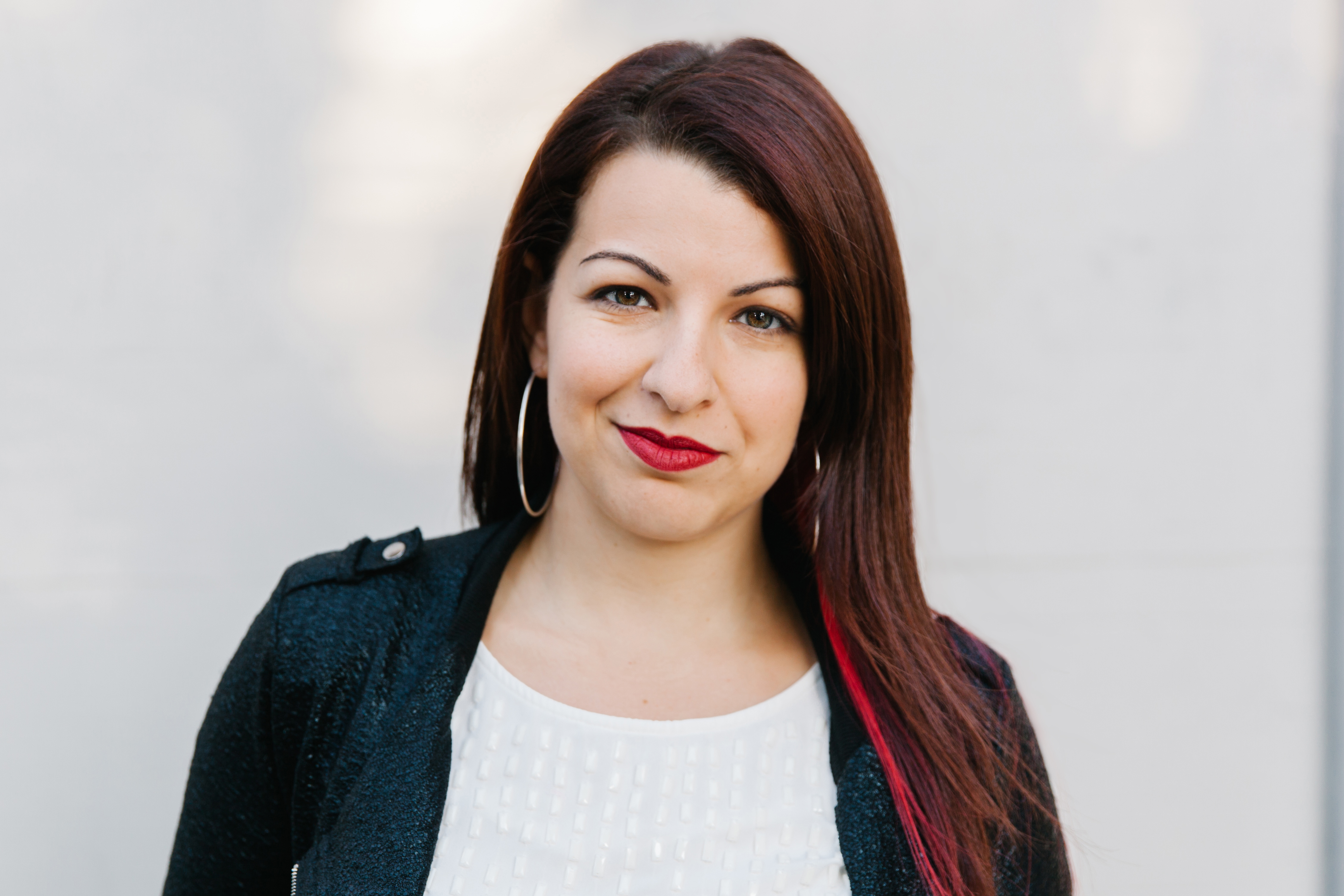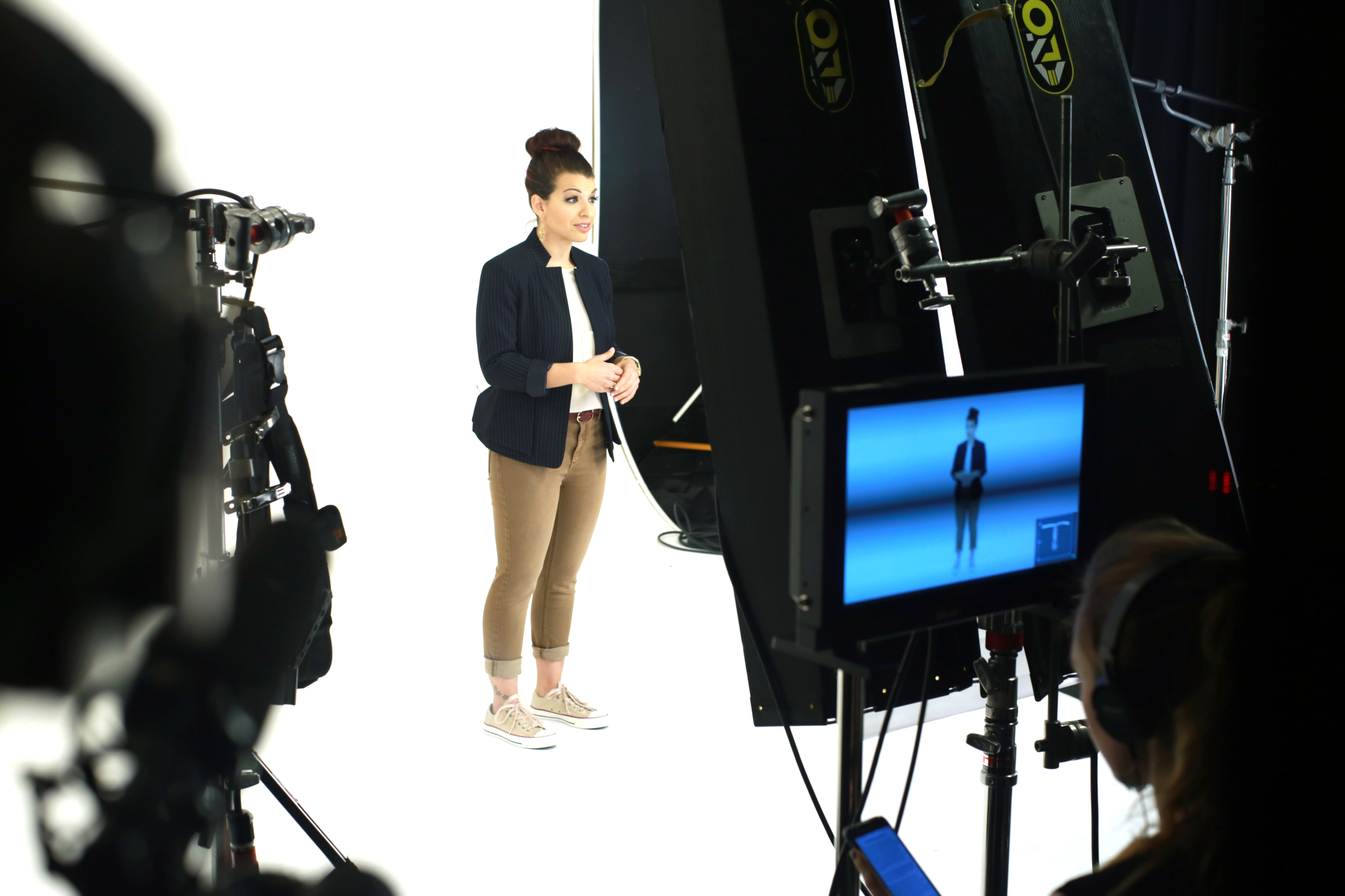Talking With Anita Sarkeesian About Ordinary Women and Extraordinary Things

By:
Anita Sarkeesian has seen the worst of the internet.
 Jessica Zollman - flic.kr
Jessica Zollman - flic.kr
But now she's bringing you some of the best.
Sarkeesian has a new web series, "Ordinary Women," a title that seems to place its tongue firmly in cheek. The women profiled in this series are historymakers, starting in episode one with Emma Goldman, the revolutionary activist and speaker.
That may remind you of Sarkeesian herself. Sarkeesian is a feminist media critic who brought you "Tropes vs. Women in Video Games" from Feminist Frequency, her not-for-profit educational organization. Her efforts to lend a feminist face and voice to media and pop culture earned praise — she was named one of Time magazine's "100 Most Influential People in the World" — but drew vitriol from trolls. "The word 'troll' feels too childish," she's said. They targeted her in Gamergate.
She rose above the harassment and is back to what makes her awesome: talking about inspiring women while unabashedly being one herself.
We talked about these women, tropes, and Gamergate.
ATTN: I admittedly did not know much about Emma Goldman and can't believe that I didn't because she was incredibly awesome.
Sarkeesian: [laughing] That is exactly why I made the series! The idea is that there's all these women who have done amazing, extraordinary things who are just fascinating individuals, whether you agree or disagree with their philosophies and their political positions. And it's like, "Why don't we know about them?"
 Anita Sarkeesian
Anita Sarkeesian
ATTN: Who are women you think are criminally underrated whom you wish more people had heard of?
Sarkeesian: [takes a moment] Wow. I don't know why that question is stumping me! [laughs] Kind of all the women we're talking about [in the web series "Ordinary Women"]. There isn't necessarily one that sticks out. When I first conceived of the project many years ago, Emma Goldman was definitely one of the women on my list of women I found really fascinating and wanted to include in this project. And you responded exactly how I hoped you'd respond!
I think all of the women — whether you've only heard a little bit about them or have never heard of them before — I think the goal is to really make these women household names. Why aren't we learning about their lives and experiences in schools in the same way that we're learning about all these men's experiences from history?
For example, Ida B. Wells — you may or may not have heard of her, it's sort of hit-or-miss — if you took a women's studies class in college, you might have heard of her. But it shouldn't take a women's studies class in college for you to know what this woman has done for the history of civil rights in America.
ATTN: So is that what inspired you to do the series then, to help be the voice for all of these women whom we may not have heard of but should have?
Sarkeesian: Yeah, absolutely. ... For example Ching Shih was one of the most feared pirates of her time, but her name is not spouted off when we talk about great pirates, like Black Beard, for example.
The other major reason is, through the last several years of working on a video series about women's representations in video games, I have interacted with and consulted with and talked to so many creative folks, both in games and outside of games, and in other forms of media, like animation or film or television. And often male creators will express a struggle with writing female characters.
I'd gotten a lot of pushback, to put it mildly, on the work that I've done. And sometimes, the really oppressive representations of women in historical-themed media or games are defended by [fans and creators] saying, "Well, women didn't do anything back then. They were just depressed, so why would they be in our games?"
So part of it is to actually inspire creative folks to include more women in their media. You could be inspired by these women and write characters like them, or you could tell their stories in your games and include them in your games. And this is for media makers across the board, not just in games. ...
ATTN: What do you think of this argument that you've probably heard many times before where people will argue, "Well, if there was a market for female and feminist characters and themes in video games, then developers would meet that demand, but there's no demand. That's not what people want." What do you say to that argument?
Sarkeesian: [laughs] It's a lot of bullshit. [Laughs] Maybe you're just getting me when I'm a little tired, but I've been hearing that for years, and everyone in this field has been hearing that for so long. And here's the thing: Whether you're looking at games, or you're looking at film, it's the same arguments over and over again. And they aren't actually looking at the numbers. The executives aren't looking at the numbers. They're not looking at what is the demographic that goes to see movies the most, because it's not men. And it's not white men for sure.
Who is the demographic that is playing games the most? What games look like, and how they are played, is transforming in a lot of ways. I think that game studios and publishers are really stuck in who they think their demographic is, as opposed to being open to expanding their demographic, and being open to including more women and more marginalized folks into their audience, as opposed to targeting 18-34-year-old white men. It's super limiting.
Every time there's a successful movie starring women — every time — it's like, "Oh, my God, that was successful?" And it keeps happening again and again. And you're like, "This is not a shock any more! There is a market, and there is interest in these sorts of representations and these kinds of stories."
Just stop being old school and start recognizing that there is a much larger and wider audience for media engagement.
ATTN: Do you think online harassment has gotten worse? We've seen what happened with Leslie Jones.
Sarkeesian: When you say, "Has it gotten worse?" it depends on the time period you're talking about. So online harassment has existed since people were able to communicate online. It has always been around. I think with the increase of social media, it's gotten easier to do. So it has increased in that way. But over the last couple of years, no, it's not gotten worse — it's always been terrible. We only see the examples that make it to the media. You're not seeing all of the people who get attacked like Leslie Jones was attacked, because they're not high profile enough to make it into a story. But women and marginalized folks are getting harassed online in these massive cyber mobs all the time. Until the media deems it "sensational" enough for it to be a news story, you're not going to hear about it.
And I think that's actually really important to understand. For example, I've been harassed, nonstop, for over four years. There was media coverage when it first happened. Then Gamergate happened two years later, and there was all this media coverage around Gamergate, and it was almost like, "Oh, well, the harassment just started in August of 2014." Well, no, I've been harassed for two years before that. Zoë [Quinn], whose ex-boyfriend started the harassment mob, was definitely harassed before that, but it was almost like it started and ended within that one period of time, because the media stopped talking about it.
But you ask any of us who were harassed back then — we're still harassed to this day. It's not a new thing. We can't talk about it every day. It's not sustainable. It's not sustainable for us, as targets, and it's also not sustainable for the public to hear every day, because what are they going to do about it, right?
So I feel like it's really important for folks to remember that this is happening every day. Literally every day there are people being harassed online, and it's destructive, and it's incredibly damaging and harmful.
ATTN: You've said, "One of the most radical things you can do is actually believe women when they talk about their experiences." What can we do to make this act less radical? Is there anything we can do?
Sarkeesian: Of course, of course. The way that social change happens is through collective movements. Through collective organizing. It's actually not just one person that makes a difference; it's a group of people working together to make change. And so when we see these increased conversations around online harassment, it's because a lot of people are speaking up, and a lot of people are working together to make this happen.
How do we work collectively to put pressure on social media companies to actually protect their users? And create systems that support their users, not actively create systems that make it really easy for harassment? How do we continue putting pressure on the media to cover these stories honestly and ethically, as opposed to constantly re-victimizing us?
There are definitely individual actions we can take. You can speak up when harassment is happening. You can support targets if you know them by asking them if they need support. There's definitely a difficult territory here, because you don't want to speak for women, and all of us are different individuals with different experiences, and we want and need different things to heal.
But speaking up, for example — like men speaking to other men about harassment and about sexism — is probably the most important thing that male allies can do. And that same thing goes for white folks speaking to other white folks about racism and intervening when that happens. If you're in the theoretical boys locker room, and someone is making a sexist joke because they think it's a "safe space" because it's all dudes, being the one guy that's like, "Nah, dude, that's not cool" is really powerful. Because it might not stop that person from being sexist, but it's definitely going to make them question where and when they can tell that joke. It's a small thing, but I think it's a really powerful thing.
